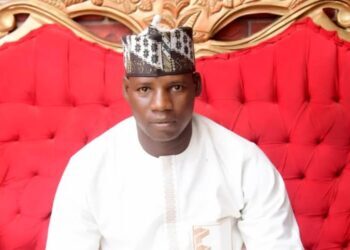The Minister of Education, Prof. Tahir Mamman has vowed to enforce a law mandating admission age for entry into tertiary institutions as 18 years.
Mamman was speaking at the 2024 Policy Meeting on Admissions into Tertiary Institutions, organised by the Joint Admissions and Matriculation Board, in Abuja on Thursday.
The News Agency of Nigeria (NAN) reports that the meeting was put in place to determine the modality and guidelines for admissions into tertiary institutions for the 2024 academic session.
The minister directed JAMB to admit only students who have attained the age of 18 years into tertiary institutions in its 2024 admission process.
“Information has revealed that the enrolment of underage candidates is inflicting serious damage on the university and the education system, hence, the need for enforcement of extant rules.
“When I was monitoring the just concluded 2024 UTME, I was alarmed at the participation of a large number of obviously under-age candidates in the examination.
“This necessitated my comment on the need to enforce the extant provisions of the educational policies which made provision for nine years of basic education and three years of Senior Secondary Education before entry into tertiary institution.
“It is clear that a child who, as expected is enrolled in basic school at the age of six and having undergone 12 years of education would be around 18 years old when being enrolled in a tertiary institution,” he said.
He bemoaned the surge in applications for immediate requests for a change of age to reflect higher age in anticipation of the imminent enforcement of the age policy.
“This again reflects dangerous games being played with the life and future of innocent children by those expected to nurture them.
“Flowing from this, JAMB is hereby instructed to admit only eligible students’ i.e those who have attained 18 years.
“Universities are advised to avoid recommending unqualified children for admission,” he added.
NAN, however, reports that there was uproar during the meeting when the minister handed down the decision of 18 years entry limit for admissions into tertiary institutions.
Vice Chancellors, Rectors, Provost and other Stakeholders at the meeting protested their disagreement on the minister’s pronouncement.
The minister, however, said that the 2024 admission criteria remained as approved, urging institutions to adhere to the laid down requirements for admission processes.
He warned that any Vice Chancellors, Rectors and Provost, who infiltrated admissions outside the Central Admissions Processing Systems (CAPS), would henceforth be sanctioned. (NAN











